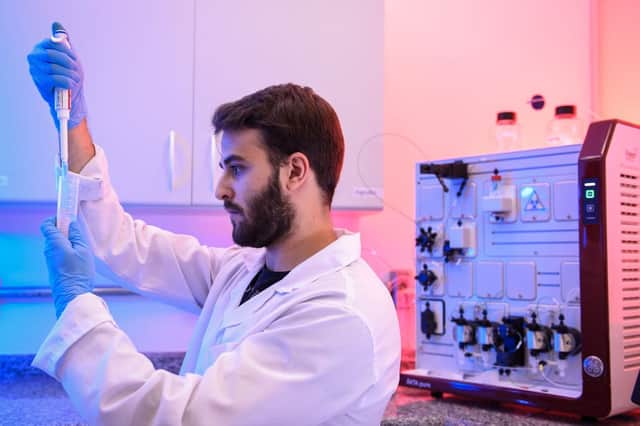Coronavirus immunity may not last for long after recovery - here’s what scientists are saying


It’s commonly thought that humans only catch most illnesses once.
Our bodies’ immune systems do a brilliant job of isolating viruses, creating efficient methods of fighting them, and then remembering that information for years.
Advertisement
Hide AdAdvertisement
Hide AdBut is that the case with Covid-19? Will catching it once mean you are immune, or can you be susceptible to the disease further down the line?
Since Covid-19 is a ‘novel’ (or new) coronavirus, we know relatively little about it, compared to similar viruses that have been studied and researched for decades. That means that the answer to many of the following questions is simply, ‘We don’t know’ at the moment. Although evidence is beginning to emerge that does suggest more clear-cut answers for many queries.
Here’s everything you need to know.
How long does coronavirus immunity last?
Even if immunity is secured after recovering from Covid-19, how long that immunity lasts for is still yet to be determined.
New research by King’s College London suggests that antibodies decrease significantly in the three months following infection, leaving patients susceptible to reinfection year after year. This is similar to the body’s reaction to the common cold.
Advertisement
Hide AdAdvertisement
Hide AdBased on the immune response of 90 patients and healthcare workers at Guy's and St Thomas' NHS Trust in London, the research showed that a ‘potent’ level of antibodies could be found in 60 per cent of participants at the peak of their battle with coronavirus.
Subsequent blood tests revealed that only 17 per cent sustained that same level of potency three months later. Antibodies decreased 23-fold in some cases, and were depleted entirely in others.
The report states that its findings have “important implications when considering widespread (antibody) testing, (antibody) protection against reinfection with (Covid-19) and the durability of vaccine protection.”
Can you catch Covid-19 twice?
The short answer here is yes, and there have been plenty of reports from around the world of people contracting the disease twice.
Advertisement
Hide AdAdvertisement
Hide AdThat only makes the question of antibodies and immunity all the more clouded, but it seems to only be a small fraction of people reporting that they have contracted Covid-19 twice, so the likelihood is thought to be quite rare.
What is the difference between antibodies and a vaccine?
Antibody tests have been available in the UK for a couple of months now, and have been doled out by the Government in the hopes of singling out people who may have already had coronavirus, and therefore may be immune.
Health officials had previously said such tests were not reliable enough, but the government agreed a deal with pharmaceutical firms Roche and Abbott for more than 10 million tests in May, after Public Health England (PHE) found them to be “highly specific.”
The tests involve taking a small sample of blood and testing it for antibodies which will indicate exposure to coronavirus. The test picks up 100 per cent of people who have had coronavirus, which means it has 100 per cent sensitivity.
Advertisement
Hide AdAdvertisement
Hide AdHowever, while antibody tests can give a clearer picture of who has already had the disease, vaccines can actually prevent people from being infected in the first place.
Vaccines typically contain weakened or killed forms of a disease’s microbe, which stimulates the body's immune system to recognise the agent as a threat, destroy it, and to further recognise and destroy any microorganisms it may encounter in the future.
Vaccination is the most effective method of preventing infectious diseases, and is largely responsible for the worldwide eradication of smallpox and the restriction of diseases such as polio, measles, and tetanus from much of the world.
When will a vaccine be available?
Depending on who you ask about vaccine availability, you might get a range of answers. We’ve heard everything from ‘the end of this year' to ‘the end of next year’, but according to a scientist leading research in the UK, a Covid-19 vaccine could be rolled out across the country in the first half of next year, if trials are successful.
Advertisement
Hide AdAdvertisement
Hide AdProfessor Robin Shattock, who heads a team developing a vaccine at Imperial College London, said that enough doses would be available for everyone in the UK if trials go "really well.”
But he warned there was "no certainty" that any of the vaccines currently being developed will be successful, as it is dependent on the level of immunity needed to prevent infection.
Appearing on Sky News' Sophy Ridge On Sunday, he said, "So we anticipate if everything goes really well that we'll get an answer as to whether it works by early next year.
"Assuming that the funding is there to purchase that vaccine, we could have that vaccine rolled out across the UK in the first half of next year.”
Scientists currently do not know what level of immunity people need to prevent infection, which makes the chance of success "difficult to predict", according to Prof Shattock.